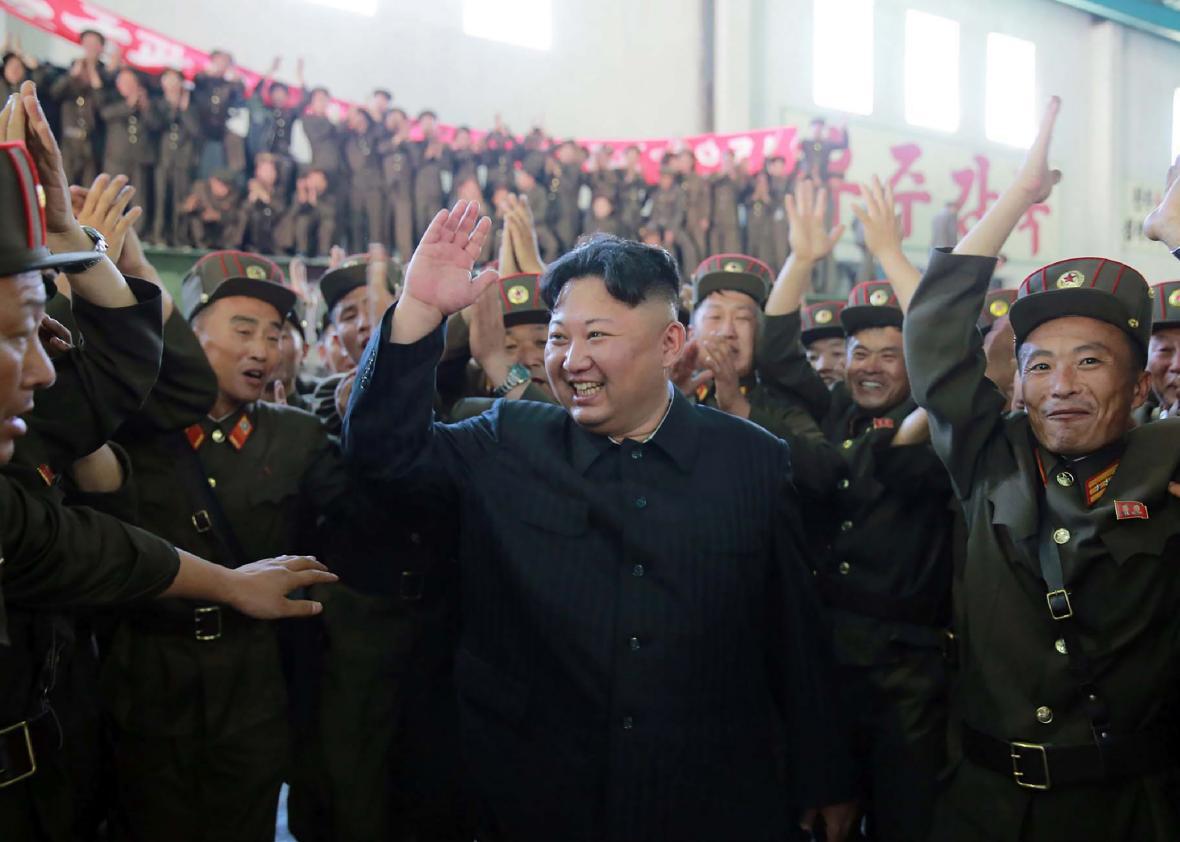In a rare instance of successful multilateral diplomacy for the Trump administration, the U.N. Security Council unanimously approved a U.S.-drafted resolution Saturday slapping new sanctions on North Korea over its recent long-range missile tests. Even China and Russia backed the measures.
If fully implemented, the new sanctions—which target coal, seafood, and metals exports; prohibit the employment of North Korean guest workers; and expand sanctions on joint economic ventures—could cut North Korea’s $3 billion annual export revenue by a third, according to U.S. officials.
That’s a big if. The AP reports that “the U.S. and other countries are deeply concerned” that North Korea’s trading partners—principally China, but also Russia—won’t fully enforce the sanctions. China has agreed to tough measures against North Korea in the past, only to back off (or employ creative accounting to mask ongoing activity).
From Beijing’s point of view, encirclement by U.S. military power is a bigger security threat than North Korea’s nukes, and Chinese leaders are unlikely to put enough pressure on North Korea to risk the collapse of a valuable buffer state. Sebastian Gorka’s confidence notwithstanding, Trump’s tweets aren’t “powerful” enough to change that thinking.
The new sanctions are stronger than past measures but are still unlikely to lead Kim Jong-un to abandon his nuclear program voluntarily. And Trump’s previous notion that China could simply solve this problem for everyone is magical thinking. As before the sanctions, there are still only two probable ways to resolve this crisis: negotiation or war.
As former State Department sanctions coordinator Richard Nephew writes Monday for the North Korea analysis site 38 North, the pressure from the new sanctions is pointless unless the overall strategy includes negotiations. There are signs that at least some factions of the Trump administration are open to negotiation. Secretary of State Rex Tillerson said last week, “We would like to sit and have a dialogue with them about the future that will give them the security they seek and the future economic prosperity for North Korea.” He emphasized, “We’re trying to convey to the North Koreans, we are not your enemy.” Despite tweeting last week that the U.S. was “done talking” about North Korea, Ambassador to the U.N. Nikki Haley also emphasized in her speech Saturday that, “we want only security and prosperity for all nations—including North Korea.”
It’s not clear that North Korea has any intention of negotiating, at least not until it demonstrates that it has a nuclear-armed ICBM capable of reaching the United States, but pursuing talks is still a preferable option to armed conflict that would put thousands of lives in the region at risk from North Korean retaliation, not to mention the chaos sure to be unleashed if the Kim regime fell. Sen. Lindsey Graham said last week that he believes military action against North Korea is “inevitable” and that “if there’s going to be a war to stop them, it will be over there. If thousands die, they’re going to die over there, they’re not going to die here and [Trump] told me that to my face.”
Of course, that assumes that North Korea doesn’t already have the capability of striking the U.S. with nuclear weapons—though some experts argue it does. As frightening and bleak as Graham’s scenario sounds, it may not be frightening and bleak enough.
